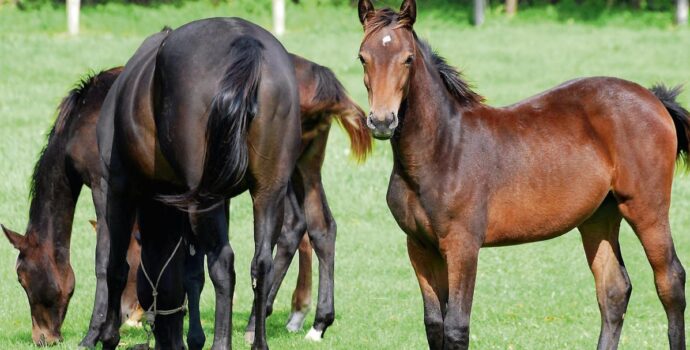IFA Calls for Review of Thoroughbred Foal Levy Regulation

IFA Deputy President and Chairman of the IFA Horse Project Team Richard Kennedy has called for a review of the 2011 Thoroughbred Foal Levy Regulation. This statutory levy is paid by breeders on all thoroughbred foals born in Ireland.
Speaking after a meeting this week with Department of Agriculture Officials to discuss breeders’ concerns with the existing Thoroughbred Foal Levy, Mr Kennedy said IFA had raised a number of key issues around the Regulation, which the Department are now considering.
“IFA supports the principle of a thoroughbred foal levy and the need to support the industry for all breeders, through the various beneficiaries of it,” said the IFA Chairman.
IFA has called for the Department to carry out a review of the Regulation, specifically to look at the wording on how stallion fees are arrived at, so that a levy can then be deducted. The existing Regulation (S.I. No. 735 of 2011) refers to the “advertised value of the nomination fee”. IFA’s position has always been that a fairer option is to collect the levy on the actual stallion fee paid by the breeder, as there can be a vast difference between the advertised fee and the actual fee paid.
IFA is also proposing that any such review should focus on the transparency on collection and allocation of the funding. “Breeders continually highlight to IFA that the collection and the allocation of the funding lacks transparency”, said Mr Kennedy.
“For the most part, breeders are unaware of who the beneficiaries are and more importantly how their money is actually spent on their behalf by the three main beneficiaries – the Irish Equine Centre, Irish Thoroughbred Marketing (ITM) and the Irish Thoroughbred Breeders Association (ITBA).
IFA also believes that the composition of the Foal Levy Committee needs to be addressed. It currently comprises of representation of the ITBA, Horse Racing Ireland (HRI) and the IFA. “IFA contends that it is not considered appropriate, and indeed it is at odds with all corporate governance norms, that organisations that are major beneficiaries of the levy have direct representation on the committee to decide how the funds are dispersed” said Mr. Kennedy.



